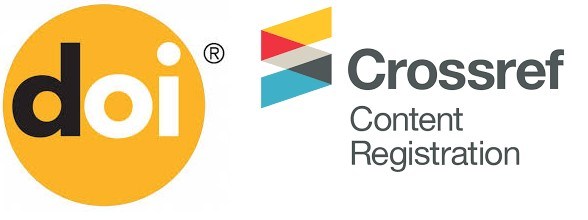KORELASI ANTARA FAMILY ATMOSPHERE DENGAN KECERDASAN EMOSI ANAK USIA 5-6 TAHUN
Abstract
Kecerdasan emosi anak usia dini merupakan ketrampilan penting yang menjadi penentu dalam keberhasilan anak di masa mendatang, baik dari segi prestasi akademik dan hubungan sosial. Berkaitan dengan hal tersebut, banyak peneliti yang mengangkat topik kecerdasan emosi dan korelasinya dengan berbagai variabel. Penelitian ini berfokus pada family atmosphere sebagai variabel yang berkorelasi dengan kecerdasan emosi. Penelitian ini melibatkan 14 anak usia 5-6 tahun di TK Mojoroto untuk mengisi kuisioner yang berisi 14 item pernyataan dari kedua variabel. Hasil penelitian ini adalah family atmosphere berkoleasi dengan kecerdasan emosi anak usia 5-6 tahun dengan koefisiensi sebesar 0,564
Keywords
Full Text:
PDFReferences
Ben-Ner, A., List, J. A., Putterman, L., & Samek, A. (2017). Learned generosity? An artefactual field experiment with parents and their children. Journal of Economic Behavior and Organization, 143, 28–44. https://doi.org/10.1016/j.jebo.2017.07.030
Bransford, J. D., Brown, A. L., Pellegrino, J. W., Cocking, R. R., & Donovan, M. S. (2000). How People Learn: Brain, Mind, Experience, and School Expanded Edition. National Academy Press.
Chen, Y., Peng, Y., & Fang, P. (2016). Emotional intelligence mediates the relationship between age and Subjective Well-being. International Journal of Aging and Human Development, 83(2), 91–107. https://doi.org/10.1177/0091415016648705
Chou, M.-J., & Fen, C.-F. (2014). Parent-child Play within Information Technology: A Quest for Quality Family Atmosphere. Procedia - Social and Behavioral Sciences, 122, 273–282. https://doi.org/10.1016/j.sbspro.2014.01.1342
Decety, J., & Holvoet, C. (2021). The emergence of empathy: A developmental neuroscience perspective. Developmental Review, 62(February), 100999. https://doi.org/10.1016/j.dr.2021.100999
Ferdiawan, E., & Putra, W. E. (2013). Esq Education for Children Character Building based on Phylosophy of Javaness in Indonesia. Procedia - Social and Behavioral Sciences, 106, 1096–1102. https://doi.org/10.1016/j.sbspro.2013.12.123
Guerra-Bustamante, J., León-Del-Barco, B., Yuste-Tosina, R., López-Ramos, V. M., & Mendo-Lázaro, S. (2019). Emotional intelligence and psychological well-being in adolescents. International Journal of Environmental Research and Public Health, 16(10), 1–12. https://doi.org/10.3390/ijerph16101720
Havigerová, J. M., Haviger, J., & Loudová, I. (2015). Teachers’ Subjective Definition of a Family-frequency Conceptual Analysis. Procedia - Social and Behavioral Sciences, 171, 425–432. https://doi.org/10.1016/j.sbspro.2015.01.142
Hu, B. Y., Li, Y., Wang, C., Wu, H., & Vitiello, G. (2021). Preschool teachers’ self-efficacy, classroom process quality, and children’s social skills: A multilevel mediation analysis. Early Childhood Research Quarterly, 55, 242–251. https://doi.org/10.1016/j.ecresq.2020.12.001
Jones, D. E., Greenberg, M., & Crowley, M. (2015). Early social-emotional functioning and public health: The relationship between kindergarten social competence and future wellness. American Journal of Public Health, 105(11), 2283–2290. https://doi.org/10.2105/AJPH.2015.302630
Lekaviciene, R., & Antiniene, D. (2016). High Emotional Intelligence: Family Psychosocial Factors. Procedia - Social and Behavioral Sciences, 217, 609–617. https://doi.org/10.1016/j.sbspro.2016.02.066
Loehlin, J. C., Horn, J. M., & Ernst, J. L. (2010). Parent-child closeness studied in adoptive families. Personality and Individual Differences, 48(2), 149–154. https://doi.org/10.1016/j.paid.2009.09.012
Martínez-Monteagudo, M. C., Delgado, B., Inglés, C. J., & García-Fernández, J. M. (2019). Cyberbullying in the university setting. Relationship with family environment and emotional intelligence. Computers in Human Behavior, 91(June 2018), 220–225. https://doi.org/10.1016/j.chb.2018.10.002
Mishar, R., & Bangun, Y. R. (2014). Create the EQ Modelling Instrument Based on Goleman and Bar-On Models and Psychological Defense Mechanisms. Procedia - Social and Behavioral Sciences, 115(Iicies 2013), 394–406. https://doi.org/10.1016/j.sbspro.2014.02.446
Nǎstasǎ, L. E., & Fǎrcaş, A. D. (2012). Family test used as an experientialist method focused on emotional intelligence development. Procedia - Social and Behavioral Sciences, 33, 483–487. https://doi.org/10.1016/j.sbspro.2012.01.168
Rieffe, C., Ketelaar, L., & Wiefferink, C. H. (2010). Assessing empathy in young children: Construction and validation of an Empathy Questionnaire (EmQue). Personality and Individual Differences, 49(5), 362–367. https://doi.org/10.1016/j.paid.2010.03.046
Salavera, C., Usán, P., Chaverri, I., Gracia, N., Aure, P., & Delpueyo, M. (2017). Emotional Intelligence and Creativity in First- and Second-year Primary School Children. Procedia - Social and Behavioral Sciences, 237(June 2016), 1179–1183. https://doi.org/10.1016/j.sbspro.2017.02.176
Shoshani, A., Braverman, S., & Meirow, G. (2021). Video games and close relations: Attachment and empathy as predictors of children’s and adolescents’ video game social play and socio-emotional functioning. Computers in Human Behavior, 114(June 2020), 106578. https://doi.org/10.1016/j.chb.2020.106578
Sierksma, J., & Shutts, K. (2021). Competence-based helping: Children’s consideration of need when providing others with help. Journal of Experimental Child Psychology, 210, 105206. https://doi.org/10.1016/j.jecp.2021.105206
Simmons, C., Steinberg, L., Frick, P. J., & Cauffman, E. (2018). The differential influence of absent and harsh fathers on juvenile delinquency. Journal of Adolescence, 62(November 2017), 9–17. https://doi.org/10.1016/j.adolescence.2017.10.010
Sincovich, A., Gregory, T., Zanon, C., Santos, D. D., Lynch, J., & Brinkman, S. A. (2019). Measuring early childhood development in multiple contexts: The internal factor structure and reliability of the early Human Capability Index in seven low and middle income countries. BMC Pediatrics, 19(1), 1–15. https://doi.org/10.1186/s12887-019-1852-5
Slušnienė, G. (2019). Possibilities for Development of Emotional Intelligence in Childhood in the Context of Sustainable Education. Discourse and Communication for Sustainable Education, 10(1), 133–145. https://doi.org/10.2478/dcse-2019-0010
Snyder, C. R., & Lopez, S. J. (2007). Positive Psychology: The Scientific and Practical Explorations of Human Strengths. Sage Publications.
Stoica, A. M., & Roco, M. (2013). The Role of the Emotional Intelligence in Kindergarden Children’s Development. Procedia - Social and Behavioral Sciences, 78, 150–154. https://doi.org/10.1016/j.sbspro.2013.04.269
Sugiarti, R., Erlangga, E., Suhariadi, F., Winta, M. V. I., & Pribadi, A. S. (2022). The influence of parenting on building character in adolescents. Heliyon, 8(5). https://doi.org/10.1016/j.heliyon.2022.e09349
Tam, H. lin, Kwok, S. Y. C. L., Hui, A. N. N., Chan, D. K. yin, Leung, C., Leung, J., Lo, H., & Lai, S. (2021). The significance of emotional intelligence to students’ learning motivation and academic achievement: A study in Hong Kong with a Confucian heritage. Children and Youth Services Review, 121, 105847. https://doi.org/10.1016/j.childyouth.2020.105847
Tihnike, D. (2018). Fungsi keluarga dalam membentuk kecerdasan emosional pada anak. Pancawahana: Jurnal Studi Islam, 13(2), 80–92. https://doi.org/10.5923/j.ijap.20130301.01
Turner, A. J., Fichera, E., & Sutton, M. (2022). Estimating the late-life effects of social and emotional skills in childhood using midlife mediators. Social Science and Medicine, 292(October 2021), 114522. https://doi.org/10.1016/j.socscimed.2021.114522
Wilson, J., & Tonner, A. (2020). Doing family: The constructed meanings of family in family farms. Journal of Rural Studies, 78(May), 245–253. https://doi.org/10.1016/j.jrurstud.2020.06.002
Wuryaningsih, W., & Prasetyo, I. (2022). Hubungan Keteladanan Orang Tua dengan Perkembangan Nilai Moral Anak Usia Dini. Jurnal Obsesi : Jurnal Pendidikan Anak Usia Dini, 6(4), 3180–3192. https://doi.org/10.31004/obsesi.v6i4.2330
Refbacks
- There are currently no refbacks.

1.png)









